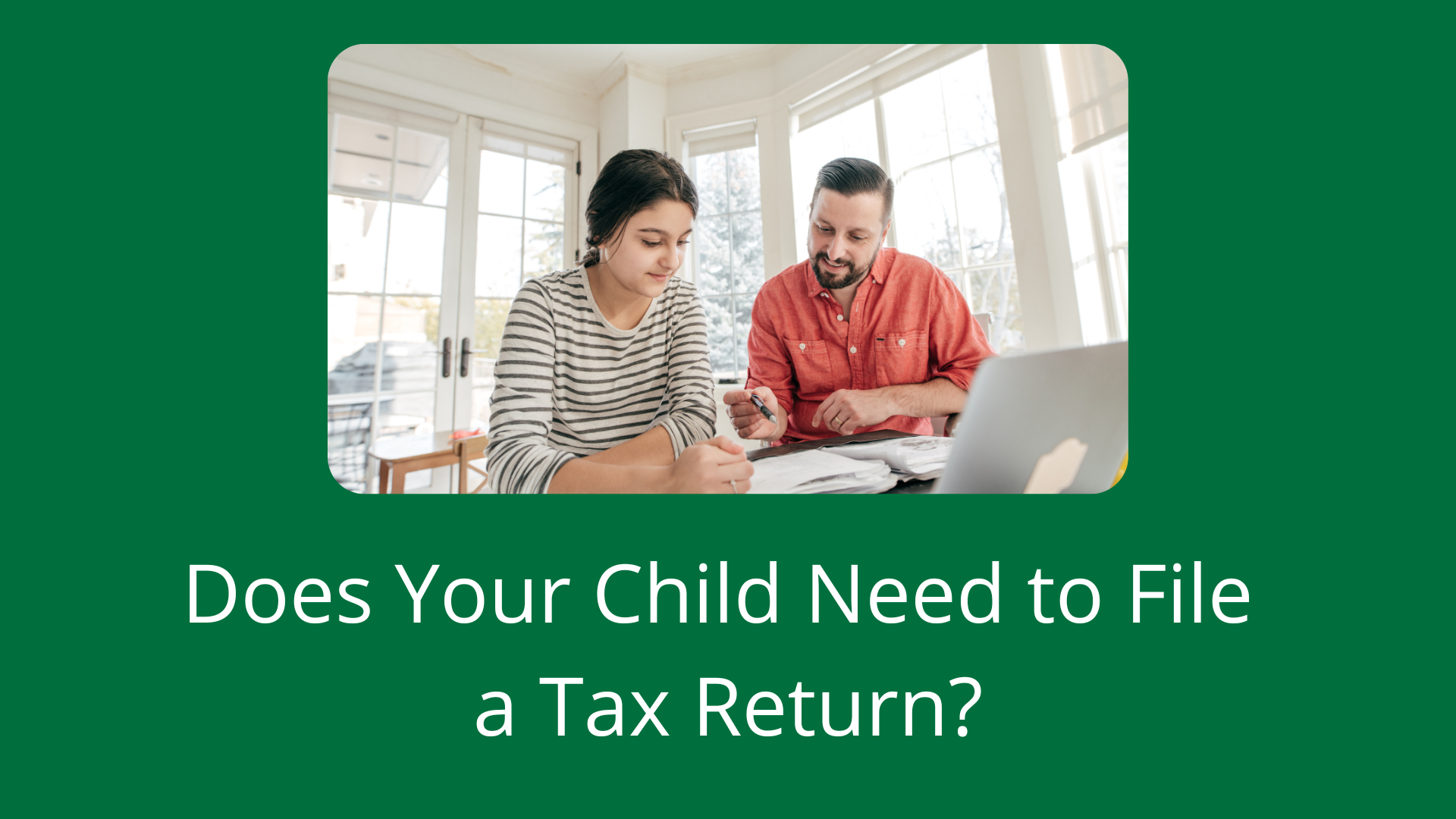
Being about a month before the tax filing deadline of April 18th, millions of Americans are either preparing, filing, or extending their returns now.
For many of those with children who either turned 16 and started working part-time or are off at college in 2022, they may be asking themselves, “Does my child need to file a tax return?”
The answer to that question, as is often the case when discussing taxes, is it depends on the situation.
Did Your Child Have Earned Income?
For a child that you claim as a dependent on your tax return, they do not have to file a return themselves if they made less than $12,950 in earned income in 2022 (increased to $13,850 for 2023).
If your child has $400 or more in tips or self-employment income (i.e babysitting, car washing, tutoring, lawn care for neighbors, pet sitting, etc.) they have to pay Social Security or Medicare taxes on it, regardless of their total earnings.
Dependency here is determined by your child’s age. They must be under the age of 19 or under the age of 24 if they are a full-time student (for 5 months of the tax year) and their income must not exceed half of the support or living expenses you as parents provide.
Once the age or amount of support they provide for themselves exceeds those limits they must file on their own. If a dependent child does file a return, they must indicate on their return that they are a claimed dependent.
Watch the Unearned Income/Kiddie Tax
While the above section talked about earned income from your child working part-time or summer jobs, there can also be an issue with unearned income. Unearned income is interest, dividend, or capital gain income accumulated in custodial accounts in the child’s name that they may have to pay taxes on them.
Once the interest and dividends accumulated surpasses the $1,150 standard deduction for 2022 (increased to $1,250 for 2023) they first must pay a 10% tax on the next $1,150, then any amount over $2,300 will be taxed at the parent(s) marginal rate.
Once the child is no longer considered a dependent and has hit the age of majority based on their state’s laws (usually 18, 21, or 25) this potential tax goes away since they will report any unearned income on their own returns. This does not apply to accumulation in 529 or Coverdell ESA savings accounts that are for the child’s benefit.
Could This Create Investment Opportunities?
The act of your child filing taxes can be a learning opportunity not only on how taxes work but on how to start saving and investing towards the future much earlier than their peers.
While your child is under the age of 18, any brokerage or Roth IRA accounts must be opened as a custodial account with the parent or guardian listed as a joint holder. For Roth IRAs, either the child or the parent can contribute up to the amount of earned income for that tax year.
For example, if the child earned $5,000 working the summer at Chick-fil-A, then $5,000 can be contributed to the child’s Roth IRA. Even if the child spent all that money, the parent(s) can make that contribution for them instead with no penalty or it being seen as a gift. The overall amount contributed is still subject to IRS limits of $6,000 for 2022, $6,500 for 2023.
There are no IRS limits or restrictions on having to have earned income for amounts contributed to a UGMA/UTMA, but again you run the risk of the Kiddie Tax coming into play with larger balances. Gifting to these accounts is also unrestricted but any amounts over the annual exclusion limit of $17,000 or $34,000 if jointly gifted with a spouse will require a gift tax return to be filed. The parent or guardian’s name will drop off the account once the child reaches age 18 for Roth IRAs and either 18, 21, or 25 for UTMA/UGMAs.
Interested in learning more about tax strategies? Check out our podcast episode about 10 tax planning opportunities you don’t want to miss.

